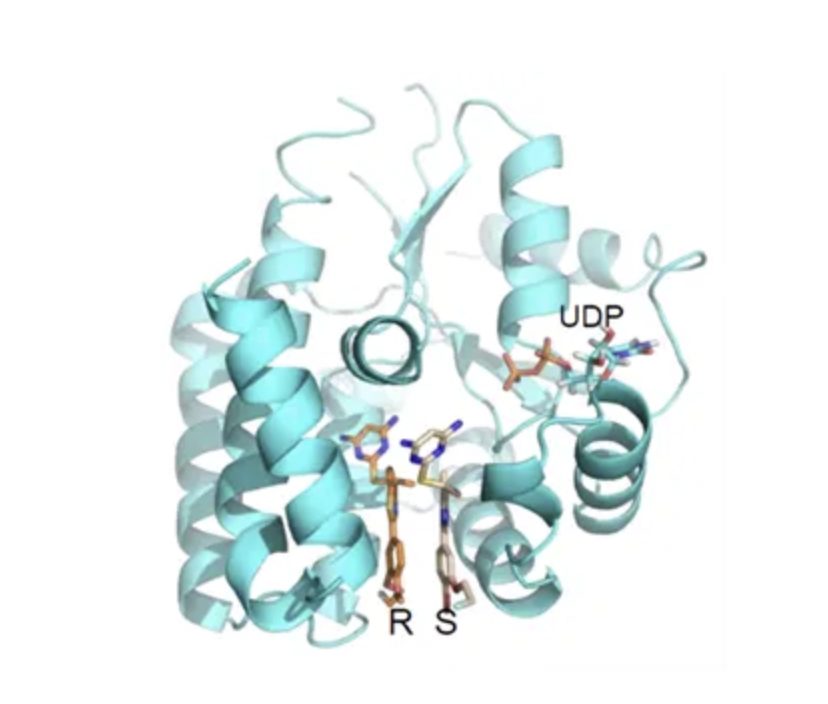Los Angeles, September 7, 2022 — Trethera Corporation (“Trethera”), a clinical stage biopharmaceutical company committed to developing novel drugs targeting nucleotide metabolism for the treatment of cancer and autoimmune diseases, announces the publication of new results in the peer-reviewed journal Immunology demonstrating that TRE-515 improved multiple sclerosis (MS) symptoms in mouse models. TRE-515 is a clinical stage drug being developed by Trethera that targets the enzyme deoxycytidine kinase (dCK) in the deoxyribonucleoside salvage pathway.
In a collaboration between Trethera and the Peter Clark Lab at UCLA, the authors studied dCK and TRE-515 in the MOG35-55 and MOG1-125 experimental autoimmune encephalomyelitis (EAE) mouse models of MS using positron emission tomography (PET) molecular imaging, efficacy studies, and Cytometry by Time of Flight (CyTOF) cellular analyses. Their results demonstrated that dCK activity is necessary for the development of clinical symptoms in both EAE models of MS. Targeting dCK with TRE-515 limited disease severity when treatments were started prophylactically at disease induction or therapeutically after symptoms appear. Remarkably, therapeutic treatment with TRE-515 resulted in neurorestoration in multiple cases.
T and B cells aberrantly activated against myelin cause disease in these MS models. Pharmacological inhibition of dCK with TRE-515 was shown to selectively block the proliferation of these CD4 T and B cells. Unlike many available MS therapies, TRE-515 does this without affecting the levels of other immune cell populations such as naïve T and B cells and innate immune cells. These results suggest that dCK represents a potential new target for treating patients and modulating symptoms in MS and other demyelinating diseases.
“Inflammation damaging the protective myelin nerve sheath causes loss of function. These data provide key validation to suggest targeting dCK with TRE-515 could have a broad role in treating T-cell and B-cell mediated demyelinating diseases such as MS, optic neuritis, and ADEM. Any drug that could improve outcomes for these patients would be game changing,” said Trethera Scientific Advisory Board member and paper co-author, Dr. Larry Steinman. Dr. Steinman is a noted immunologist and neurologist, a professor of pediatrics at Stanford University, and a member of the National Academy of Sciences.

Figure 1: PET scans showing mouse brain before (left) and after (right) MS induction (brain encircled in a dashed white line). The salvage pathway becomes upregulated during MS disease.
Reference: Chen et al. (2022), Targeting deoxycytidine kinase improves symptoms in mouse models of multiple sclerosis. Immunology. https://doi.org/10.1111/imm.13569.
About Trethera
Trethera is a clinical stage privately held biopharmaceutical company dedicated to pioneering the development of novel treatments for autoimmune diseases and cancers. Founded by prominent UCLA scientists, Trethera is led by experienced management and board members. Trethera’s innovative approach to targeting nucleotide metabolism led to the development of TRE-515, an orally taken capsule twice designated by the FDA as an Orphan Drug. TRE-515 is a first-in-class clinical stage drug that inhibits deoxycytidine kinase (dCK), the rate-limiting enzyme in the nucleoside salvage pathway, one of two biosynthetic pathways that generate DNA precursors. It is believed that some forms of cancer may be preferentially dependent on the salvage pathway to support tumor growth, and certain autoimmune diseases, such as multiple sclerosis, might also respond to TRE-515 treatment. Trethera is developing TRE-515 for use as a monotherapy or in combination, to precisely target a metabolic vulnerability of cancer or autoimmune diseases that will transform outcomes for patients.
For more information, please visit us at trethera.com or e-mail Investor Relations at ir@trethera.com.
Note on Forward-Looking Statements
All statements other than statements of historical facts included in this press release that address activities, events or developments that Trethera believes or anticipates will or may occur in the future are “forward-looking statements,” which may often, but not always, be identified by the use of such words as “may,” “might,” “will,” “will likely result,” “would,” “should,” “estimate,” “plan,” “project,” “forecast,” “intend,” “expect,” “anticipate,” “believe,” “seek,” “continue,” “target” or the negative of such terms or other similar expressions. Although Trethera has a reasonable basis for the forward-looking statements contained herein, Trethera cautions that such statements are based on current expectations about future events and are subject to risks, uncertainties and factors relating to medical and scientific research, all of which are difficult to predict and many of which are beyond Trethera’s control, that may cause actual results to differ materially from those expressed or implied by the forward-looking statements in this press release. These potential risks and uncertainties include, without limitation: the extent to which development of any novel cancer therapies or therapies for autoimmune diseases succeeds; whether Trethera would obtain the necessary regulatory approvals to commence human trials or commercialize TRE-515 or any novel therapies resulting from such research; Trethera successfully implementing its growth strategy, including that relating to its disease therapies; the effects of the global Covid-19 pandemic; changes in economic conditions; competition; and risks and uncertainties applicable to the business of Trethera. The statements in this press release speak only as of the date hereof and Trethera does not undertake any obligation to update, amend or clarify these forward-looking statements whether as a result of new information, future events or otherwise. The Company intends that all forward-looking statements be subject to the safe-harbor provisions of the Private Securities Litigation Reform Act of 1995.




